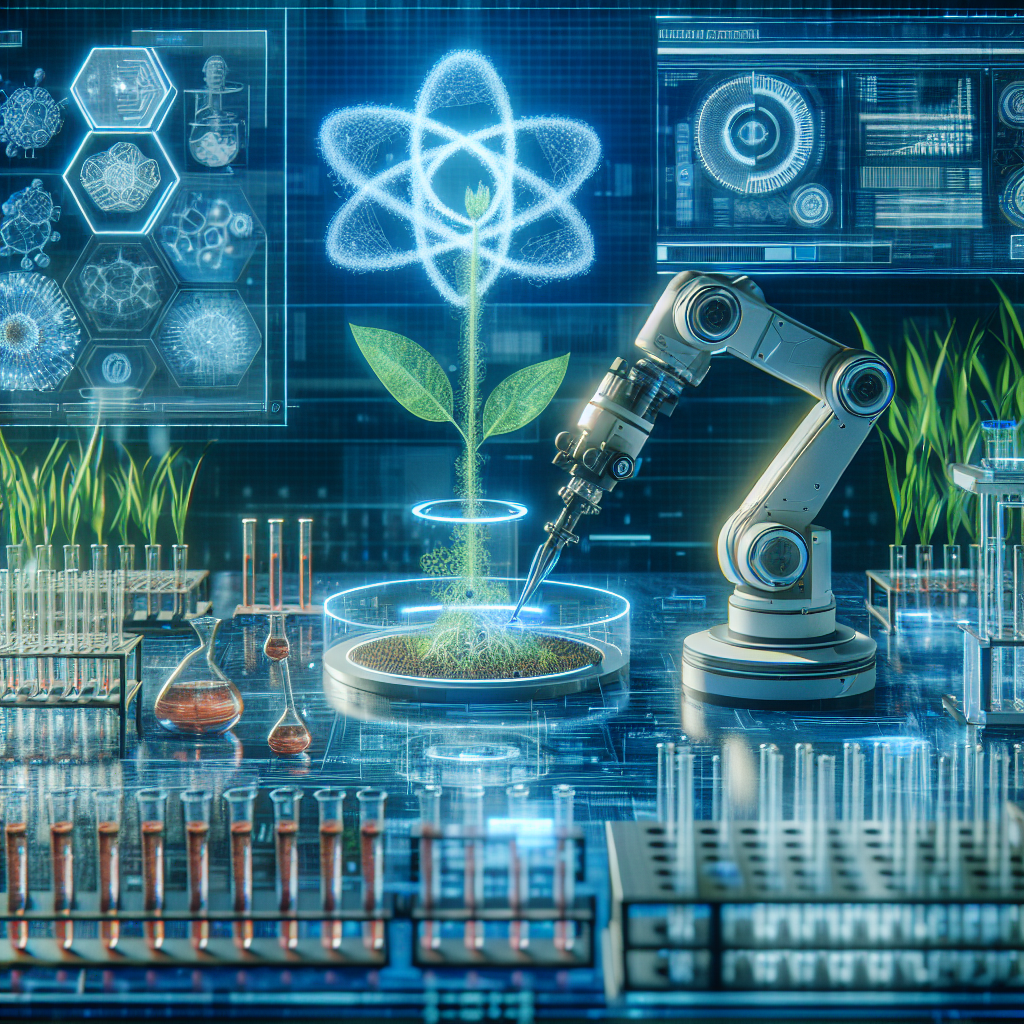Precision plant breeding is a rapidly evolving field that is revolutionizing agriculture by utilizing artificial intelligence (AI) in combination with genetic engineering and biotechnology to develop crops that are more resilient, productive, and nutritious. This cutting-edge approach holds the potential to address global challenges such as food insecurity, climate change, and the depletion of natural resources.
AI in precision plant breeding involves the use of sophisticated algorithms and machine learning techniques to analyze vast amounts of genetic data and predict the traits of interest in crops. By identifying the genetic markers associated with desirable traits such as disease resistance, drought tolerance, and high yield, researchers can accelerate the breeding process and develop new varieties more efficiently.
One of the key innovations in genetic engineering and biotechnology that has been enabled by AI is genome editing. This technology allows scientists to precisely modify the DNA of plants to introduce desirable traits or eliminate harmful ones. For example, researchers have used genome editing techniques such as CRISPR-Cas9 to develop crops that are resistant to pests and diseases, as well as those that can thrive in challenging environmental conditions.
Another important application of AI in precision plant breeding is the optimization of breeding programs. By analyzing the genetic diversity within plant populations and predicting the outcomes of different breeding strategies, researchers can design more effective breeding programs that lead to the development of superior crop varieties. This not only accelerates the breeding process but also reduces the time and resources required to bring new varieties to market.
In addition to genetic engineering, AI is also being used in the field of biotechnology to improve crop performance through the development of biostimulants and biopesticides. Biostimulants are substances that enhance plant growth and productivity, while biopesticides are natural alternatives to chemical pesticides that can help protect crops from pests and diseases. By leveraging AI to identify the most effective biostimulants and biopesticides for specific crops, researchers can enhance the sustainability and resilience of agriculture.
Overall, the integration of AI, genetic engineering, and biotechnology in precision plant breeding is transforming the way we develop and cultivate crops. By harnessing the power of AI to analyze genetic data, optimize breeding programs, and develop innovative biotechnological solutions, researchers are unlocking the full potential of plant genetics to address the challenges facing agriculture and food security.
FAQs about AI in Precision Plant Breeding:
Q: How does AI help in accelerating the breeding process?
A: AI enables researchers to analyze vast amounts of genetic data and identify the genetic markers associated with desirable traits in crops. By predicting the outcomes of different breeding strategies, AI helps optimize breeding programs and develop new varieties more efficiently.
Q: What is genome editing and how is it used in precision plant breeding?
A: Genome editing is a technology that allows scientists to precisely modify the DNA of plants to introduce desirable traits or eliminate harmful ones. Techniques such as CRISPR-Cas9 are used to edit the genome of crops and develop varieties with improved traits.
Q: What are biostimulants and biopesticides, and how do they benefit agriculture?
A: Biostimulants are substances that enhance plant growth and productivity, while biopesticides are natural alternatives to chemical pesticides that can help protect crops from pests and diseases. By using AI to identify the most effective biostimulants and biopesticides, researchers can improve the sustainability and resilience of agriculture.
Q: What are the potential benefits of AI in precision plant breeding for food security and sustainability?
A: AI in precision plant breeding has the potential to develop crops that are more resilient, productive, and nutritious, thus improving food security and sustainability. By accelerating the breeding process and optimizing breeding programs, researchers can address global challenges such as climate change, food insecurity, and the depletion of natural resources.

